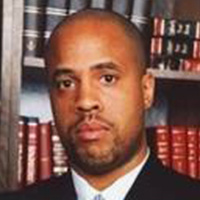Peoria Criminal Lawyer, Arizona, page 2
Sponsored Law Firm
-
 x
x

Click For More Info:
-
Kenneth S. Countryman, P.C.
1130 North 2nd Street P.O. BOX 11077 Phoenix, AZ 85004» view mapCriminal Defense Law A Law Firm You Can Trust
Let Kenneth S. Countryman, P.C. handle your criminal defense legal matters.
800-978-0861
Brian D. Sloan
✓ VERIFIED *Status is reviewed annually. For latest information visit hereAttorney Brian Sloan is one of only a handful of Attorneys in Arizona that focuses SOLELY on & Specializes in DUI Defense Representation. Mr. Sloan... (more)
Craig Raymond
✓ VERIFIED *Status is reviewed annually. For latest information visit hereCraig Raymond, an attorney at My AZ Lawyers, has been practicing law in Arizona Nearly 25 years. Mr. Raymond understands the impact and privilege of h... (more)
Florence Bruemmer
✓ VERIFIED *Status is reviewed annually. For latest information visit hereFlorence M. Bruemmer is a licensed attorney in the following jurisdictions: State of Arizona, United States District Court of Arizona, Ninth Circuit C... (more)
Marc Roger Grant
✓ VERIFIED *Status is reviewed annually. For latest information visit hereMarc graduated Suma Cum Laude from Arizona Summit Law School where he was awarded CALI Excellence for the Future awards in Family Law, Constitutional ... (more)
Kaitlin Simone DiMaggio
✓ VERIFIED *Status is reviewed annually. For latest information visit hereKaitlin Simone DiMaggio is a graduate of the Sandra Day O'Connor College of Law. She went to law school so she could represent a close family member a... (more)
John Schill
✓ VERIFIED *Status is reviewed annually. For latest information visit hereIf you've been arrested for driving under the influence (DUI) or another criminal offense in Phoenix, Arizona, who will you bring to the fight? Workin... (more)
John P. Tatz
FREE CONSULTATION
CONTACTKevin J. McAlonan
FREE CONSULTATION
CONTACT Kenneth Countryman Phoenix, AZ
Kenneth Countryman Phoenix, AZ Practice AreasExpertise
Practice AreasExpertise








